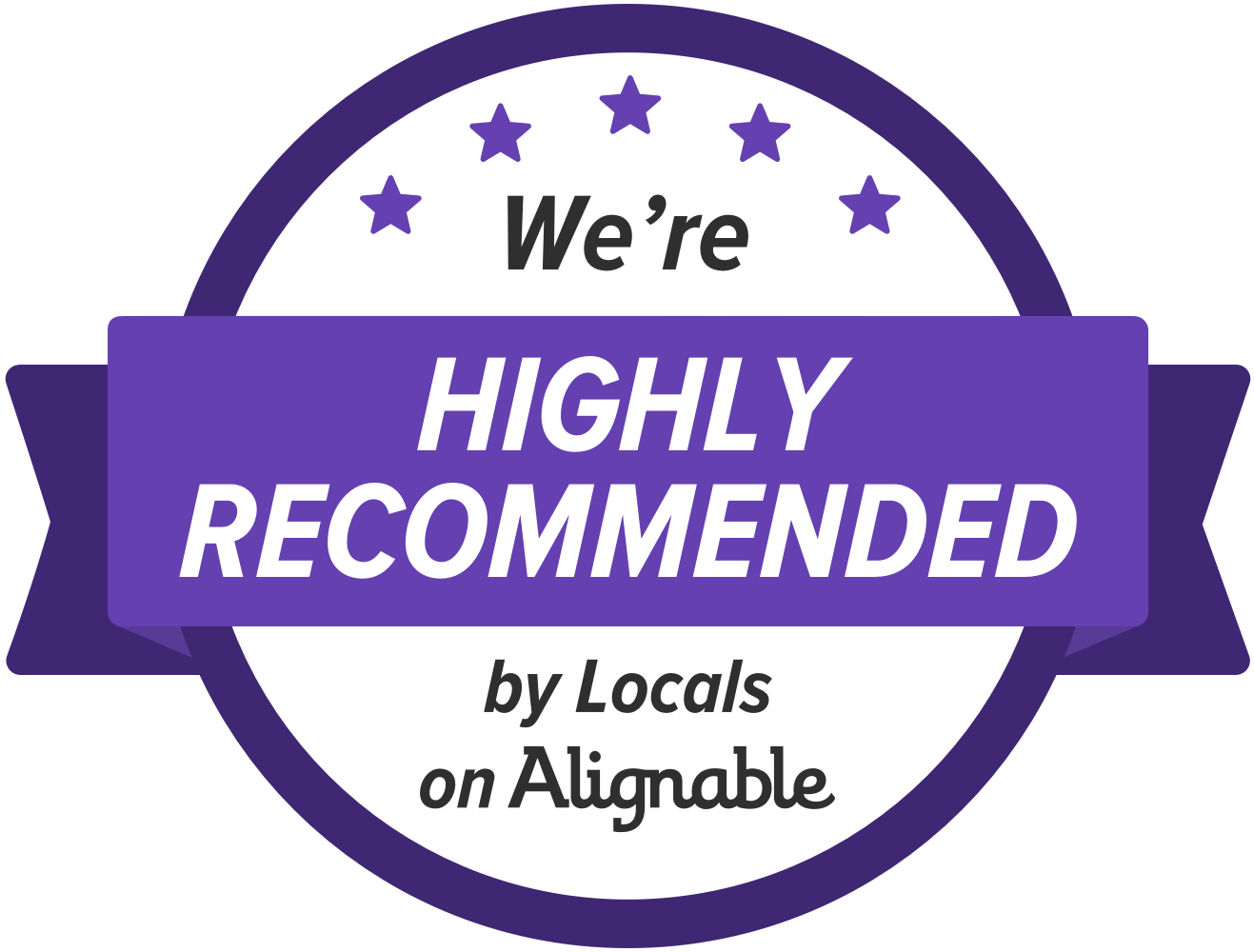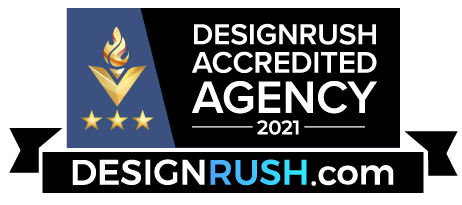The Ultimate Guide to Outstanding Phoenix Website Design: Boost Your Online Presence Today!
Welcome to the ultimate guide to outstanding Phoenix website design! Are you ready to take your online presence to the next level? Look no further because we've got you covered.
In the digital age, a well-designed website is essential for any business looking to thrive in the competitive online market. With our expert tips and tricks, you'll learn everything you need to know about creating a website that not only looks stunning but also drives conversions.
Our guide will walk you through the process of creating a website that not only captures the attention of your target audience but also encourages them to take action. From choosing the right color palette to optimizing your website for search engines, we'll cover it all.
Whether you're a small local business in
Scottsdale,
Chandler, or any surrounding areas in the Phoenix Valley or a global company, investing in outstanding website design can make all the difference. So why wait? Boost your online presence today with our comprehensive guide to
Phoenix website design. Get ready to stand out from the competition and watch your business soar to new heights.
Key Takeaways:
- Importance of Website Design: A well-designed website fosters trust, enhances user experience, and improves search engine rankings.
- Core Design Elements: Effective navigation, a compelling color palette, high-quality visuals, and optimized content are essential.
- User Experience (UX): Fast load times, mobile responsiveness, and accessibility are key to retaining visitors and driving conversions.
- Emerging Trends: Minimalism, bold typography, and interactive features are trending and help your website stand out.
- Professional Help vs. DIY: While DIY can be cost-effective, professional design offers customization and scalability for better long-term results.

Importance of Outstanding Website Design
In today's digital era, the importance of outstanding website design cannot be overstated. A website serves as the online face of a business, often being the first point of contact for potential customers. When users visit a website, they form an immediate impression, and this impression can significantly influence their perception of the brand. A well-designed website fosters trust and credibility, making visitors more likely to engage with your content, explore your services, and ultimately convert into customers. Conversely, a poorly designed site can lead to high bounce rates, lost opportunities, and a tarnished reputation.
Moreover, outstanding website design goes beyond aesthetics; it encompasses functionality and user experience. A website that is visually appealing but difficult to navigate or slow to load can frustrate users, leading them to abandon their search for information. In contrast, a site that balances beautiful design with seamless usability encourages visitors to explore further, increasing the likelihood of conversions. Today’s consumers expect a high standard of design and functionality, and businesses that fail to meet these expectations risk falling behind their competitors.
Additionally, effective website design is essential for search engine optimization (SEO). Search engines like Google use various ranking factors to determine the visibility of a website in search results. A well-structured design that incorporates SEO best practices, such as fast loading speeds, mobile optimization, and proper use of keywords, can help improve your site’s ranking. This not only drives organic traffic but also enhances your brand's online visibility, ultimately leading to increased sales and customer loyalty.
Elements of a Successful Phoenix Website Design
Creating a successful website in Phoenix involves integrating several key elements that contribute to overall effectiveness. First and foremost, the layout of the website should be intuitive and user-friendly. Users should be able to navigate effortlessly between pages, find the information they need, and understand the site's structure at a glance. Clear navigation menus, strategic placement of calls to action, and a logical flow of information are crucial components of an effective layout. This ensures that users can engage with your content without frustration.
Visual elements also play a significant role in successful web design. Choosing the right color palette, typography, and imagery can enhance the overall aesthetic appeal of the site. Colors should align with your brand identity and evoke the desired emotions from your audience. For instance, vibrant colors may attract a younger demographic, while muted tones might appeal to a more professional audience. Similarly, high-quality images and graphics can capture attention and convey your brand message effectively, making your website more engaging.
Lastly, content is king in the realm of website design. High-quality, relevant content not only informs visitors but also encourages them to take action. It’s essential to incorporate clear and compelling copy that resonates with your target audience. Content should be optimized for search engines while maintaining a conversational tone that appeals to readers. Regularly updated blogs, informative articles, and engaging multimedia content can help position your business as an authority in your industry, further enhancing the effectiveness of your website design.
User Experience and Website Design
User experience (UX) is a critical aspect of website design that directly impacts how visitors interact with your site. A positive UX leads to increased satisfaction, loyalty, and conversions, while a negative experience can result in frustrated users leaving your site prematurely. To create a seamless user experience, it’s essential to prioritize the needs and preferences of your audience. Conducting user research, gathering feedback, and testing different design elements can provide valuable insights into what works best for your target demographic.
One key factor in user experience is load time. Research shows that users expect websites to load within seconds, and delays can lead to significant drops in user engagement. To optimize load times, consider compressing images, minimizing the use of heavy scripts, and utilizing effective coding practices. Additionally, a clean and organized layout can enhance usability, making it easier for users to find what they’re looking for without unnecessary distractions.
Another important aspect of UX is accessibility. Ensuring that your website is accessible to all users, including those with disabilities, is not only ethical but also expands your potential audience. This includes using alt text for images, providing keyboard navigation options, and ensuring that your site is compatible with screen readers. A commitment to inclusive design not only enhances user experience but also showcases your brand’s values and dedication to serving a diverse customer base.
Mobile Responsiveness and Website Design
With the rise of smartphones and tablets, mobile responsiveness has become a non-negotiable aspect of website design. A responsive website adjusts seamlessly to different screen sizes, ensuring that users have a consistent and enjoyable experience, whether they are browsing on a desktop, tablet, or smartphone. In Phoenix, where many residents rely on mobile devices for information and services, having a mobile-friendly site is crucial for capturing this audience.
Search engines, particularly Google, prioritize mobile-friendly websites in their ranking algorithms. This means that if your website is not optimized for mobile use, you risk losing visibility in search results. Implementing a responsive design not only improves your site's SEO but also enhances user engagement. Visitors are more likely to stay on your site and explore when they can easily navigate and interact with your content on any device.
To achieve mobile responsiveness, consider using a flexible grid layout, scalable images, and CSS media queries. These techniques allow your website to adapt to various screen sizes without compromising its design or functionality. Testing your website across multiple devices and screen resolutions can help identify any issues and ensure that users have a positive experience, regardless of how they access your site.
Phoenix Website Design Trends
Staying updated with the latest website design trends is essential for maintaining a competitive edge in the bustling Phoenix market. One trend that has gained popularity is minimalism. Clean lines, ample white space, and a focus on essential elements create a sleek appearance that enhances user experience. Minimalist design allows content to shine without distractions, making it easier for visitors to focus on key messages and calls to action.
Another emerging trend is the use of bold typography. Unique fonts and large text can create a strong visual impact and help convey your brand personality. When paired with a minimalist layout, bold typography can draw attention to important information and enhance the overall aesthetic of the site. However, it’s essential to ensure that the chosen fonts are legible and align with your brand identity.
Incorporating interactive elements is also becoming increasingly common in website design. Features such as animated graphics, hover effects, and interactive infographics engage users and encourage them to interact with your content. These elements not only enhance the user experience but also make your site more memorable. As technology continues to evolve, exploring innovative design techniques can help keep your website fresh and appealing to your audience.
Choosing a Website Design Agency in Phoenix
Selecting the right website design agency is a critical step in the process of creating an outstanding online presence. With numerous agencies operating in Phoenix, it’s essential to conduct thorough research to find one that aligns with your business goals and values. Start by examining their portfolio, paying attention to the variety and quality of websites they’ve designed. This will give you insight into their design style, creativity, and ability to deliver results that resonate with different audiences.
Another important factor to consider is the agency’s approach to collaboration and communication. Designing a website is a collaborative process that requires open lines of communication. Ensure that the agency values your input and is willing to work closely with you throughout the design process. A good agency will take the time to understand your business, target audience, and specific needs, tailoring their approach accordingly.
Lastly, don’t hesitate to ask for references and client testimonials. Speaking with previous clients can provide valuable insights into the agency’s reliability, professionalism, and ability to meet deadlines. Additionally, consider their ongoing support and maintenance services. A quality agency will not only help you launch your website but also provide ongoing assistance to ensure its continued success and performance.
DIY Website Design vs. Professional Website Design
When it comes to website design, businesses often face the choice between DIY solutions and hiring a professional agency. DIY website builders offer a range of templates and tools that allow users to create their own sites without extensive technical knowledge. This can be an appealing option for small businesses or startups with limited budgets. However, while DIY solutions may be cost-effective, they often come with limitations in terms of customization, functionality, and scalability.
On the other hand, professional website design offers a higher level of expertise and tailored solutions. Designers and developers understand the nuances of effective web design, from user experience to SEO optimization. They can create a custom website that aligns with your brand identity, meets your specific needs, and adapts to future growth. Investing in professional design often results in a more polished and functional website that can drive better results in terms of traffic and conversions.
Ultimately, the decision should be based on your business goals, budget, and resources. If you have the time and skills to create a basic website, DIY might be a suitable option. However, for businesses looking to establish a strong online presence and achieve long-term success, partnering with a professional design agency is often the best choice. The initial investment can pay off significantly as your website attracts more visitors and converts them into loyal customers.
Measuring the Success of Your Phoenix Website Design
Evaluating the success of your website design is essential for understanding its impact on your business and identifying areas for improvement. Key performance indicators (KPIs) should be established to measure various aspects of your website’s performance. Common KPIs include website traffic, bounce rates, conversion rates, and average session duration. Tracking these metrics can provide valuable insights into how users interact with your site and reveal whether your design effectively meets your goals.
Utilizing tools such as Google Analytics can help you gather data on user behavior, traffic sources, and demographics. Analyzing this data allows you to make informed decisions about design adjustments, content strategies, and marketing efforts. For instance, if you notice a high bounce rate on a particular page, it may indicate that the design or content is not resonating with visitors, prompting you to make necessary changes.
A/B testing is another valuable method for measuring the effectiveness of your website design. By creating two versions of a page and comparing their performance, you can determine which elements are more successful in driving user engagement and conversions. This iterative approach allows you to refine your design continuously, ensuring that it aligns with your audience’s preferences and behaviors.
Conclusion
In conclusion, outstanding website design is a fundamental component of establishing a strong online presence in Phoenix's competitive landscape. By understanding the importance of effective design, incorporating essential elements, and prioritizing user experience, businesses can create websites that not only attract visitors but also drive conversions. Staying current with design trends, choosing the right agency, and measuring success through KPIs further enhance the potential for achieving long-term results.
Whether you opt for a DIY approach or partner with professionals, investing in quality website design is crucial for standing out in today’s digital marketplace. As you embark on your website design journey, remember that your site is a reflection of your brand and an essential tool for engaging with your audience. By implementing the insights provided in this guide, you can boost your online presence and set your business on a path to success. Embrace the power of Easy-Click Web Design outstanding web design today and watch your business flourish in the ever-evolving digital landscape.
Phoenix Website Design FAQs
Why is website design important for my business in Phoenix?
Website design is crucial as it serves as the digital face of your business, influencing first impressions and impacting user engagement, SEO rankings, and conversions.
What are the key elements of an effective website design?
Key elements include intuitive navigation, compelling visuals, engaging content, fast load times, and mobile responsiveness to provide an optimal user experience.
How can I ensure my website is mobile-friendly?
Use responsive design techniques like flexible grids, scalable images, and media queries. Testing your website on various devices ensures consistency across platforms.
Should I hire a professional web design agency or use a DIY platform?
For businesses seeking tailored solutions and scalability, a professional agency is ideal. DIY platforms can work for smaller businesses with limited budgets but may lack advanced customization.
How do I measure the success of my website design?
Track KPIs like website traffic, bounce rates, conversion rates, and session durations using tools like Google Analytics. Conduct A/B testing to refine design elements based on user behavior.
Share
Ready to get started ?
Call us at 623.688.3741
All Rights Reserved | Easy-Click Web Design | JCT LLC | Terms of Service















